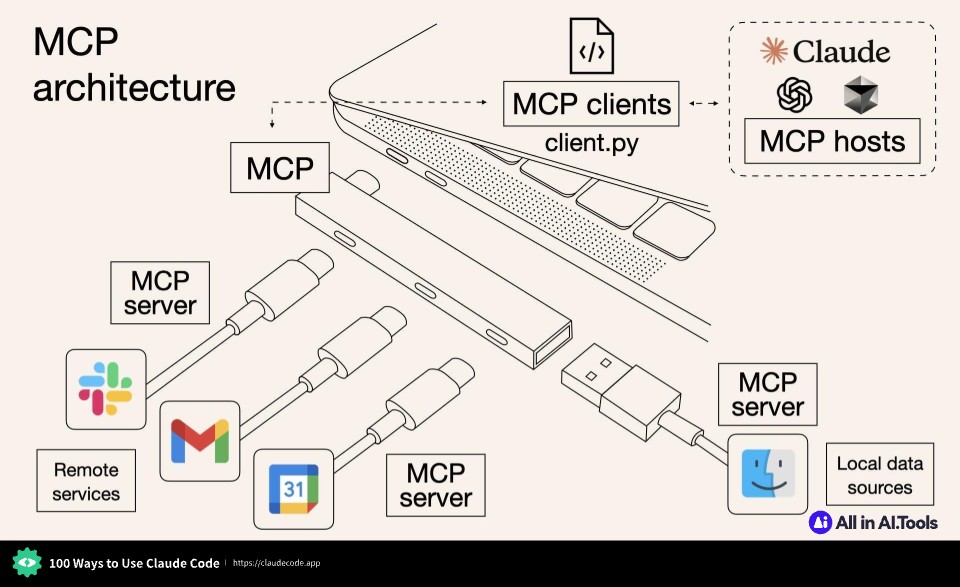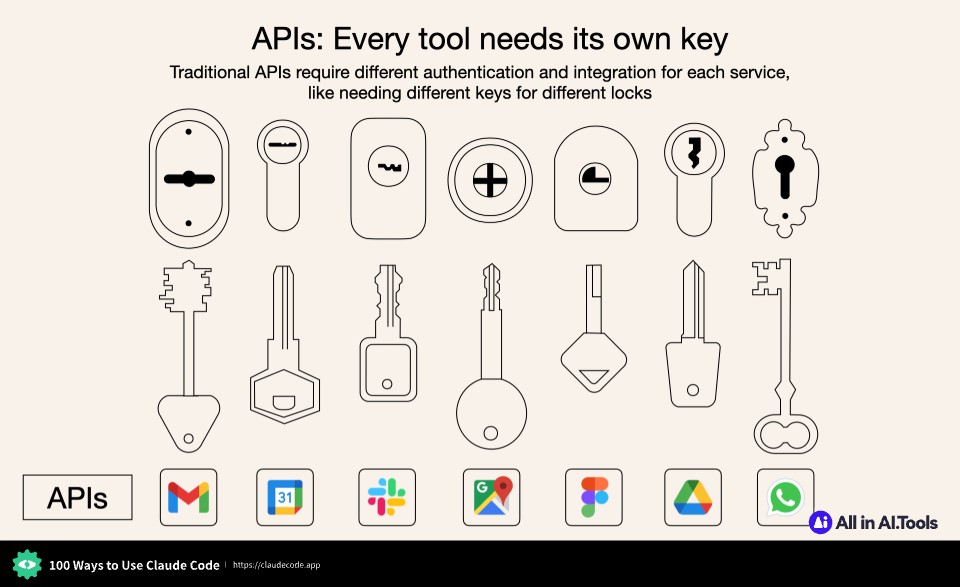Discover and integrate MCP servers to extend Claude's capabilities
An MCP server that tracks trending AI models, datasets, and spaces on Hugging Face.
An MCP server that integrates with the Freqtrade cryptocurrency trading bot.
An MCP server that provides real-time cryptocurrency news sourced from NewsData for AI agents.
An MCP server that delivers blockchain news and in-depth articles from BlockBeats for AI agents.
A TypeScript-based MCP server for Jira integration with Cursor
This project is a Node.js application designed for use with Claude Desktop. It simulates a CO2 sensor device and provides a JSON-RPC server to interact with the device. The application can run in both simulation mode and real mode, where it connects to a Raspberry Pi Pico via USB to read CO2 levels.
An MCP server that can convert Excel (.xls/.xlsx) and Apple Numbers (.numbers) files to PDF
MCP Server for Google Cloud Healthcare API
MCP Server that integrates with Security Copilot, Sentinel and other tools (in the future). It enhance the process of developing , testing and uploading Security Copilot artifacts.
A powerful MCP server for Google search that enables parallel searching with multiple keywords simultaneously.
MCP server for Naver Search API integration. Provides comprehensive search capabilities across Naver services (web, news, blog, shopping, etc) and data trend analysis tools via DataLab API.
MCP server that provides tools and resources for integrating Hugeicons into various platforms. It implements a Model Context Protocol (MCP) server that helps AI assistants provide accurate guidance for using Hugeicons.
MCP server for getting github trending repos & developers
Model Context Protocol (MCP) server that provides tools for accessing the Korea Tourism API
A cringe-worthy MCP server that serves ads to developers in Cursor, Claude, and other clients
Memento MCP: A Knowledge Graph Memory System for LLMs
MCP server paired with a browser extension that enables AI agents to control the user's browser.
Web3 MCP server for EVM chains (at moment)
MCP (Model Context Protocol) server for Dumpling AI
A Model Context Protocol (MCP) server for interacting with the Hetzner Cloud API. This server allows language models to manage Hetzner Cloud resources through structured functions.
A browser extension and MCP server that allows you to interact with the browser you are using.
MCP server for using ScrAPI to scrape web pages.
Tools for seamless integration of different systems and services.
Cloud infrastructure and deployment management tools.
AI-powered tools for creative design workflows across 3D and 2D mediums.
AI-powered tools for product development, design review, and performance monitoring.
Tools for monitoring, analytics, and operational efficiency.


Explore Claude Cowork, Anthropic's groundbreaking AI agent built on Claude Code foundations. Discover how it enables file access, document creation, and task automation for everyone—not just developers. Learn how it integrates with MCP servers and extends Claude Code capabilities.
Explore the major [Claude code](https://claudecode.app) 2.1.1 update featuring 109 CLI improvements, automatic hot reload for skills, sub-agent execution, enhanced security, performance optimizations, and smarter prompt behavior. Learn about all the new features and improvements.
Master the art of prompting Claude with Anthropic official guide. Learn 10 proven strategies to 10x your Claude Opus and Sonnet 4.5 performance. Discover how better prompts lead to better results with practical examples and real-world applications.
Deep dive into sophisticated SSH workflows for Claude Code power users. Learn zero-friction authentication, session management, and advanced techniques that transform your vibe coding experience.
MCP (Model Context Protocol) is an open protocol that standardizes how applications provide context to LLMs. Think of MCP like a USB-C port for AI applications, providing a standardized way to connect AI models to different data sources and tools.
MCP Servers are lightweight programs that expose specific capabilities through the standardized Model Context Protocol. They act as bridges between LLMs like Claude and various data sources or services, allowing secure access to files, databases, APIs, and other resources.
MCP Servers follow a client-server architecture where a host application (like Claude Desktop) connects to multiple servers. Each server provides specific functionality through standardized endpoints and protocols, enabling Claude to access data and perform actions through the standardized protocol.
Yes, MCP Servers are designed with security in mind. They run locally with explicit configuration and permissions, require user approval for actions, and include built-in security features to prevent unauthorized access and ensure data privacy.